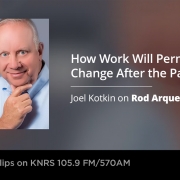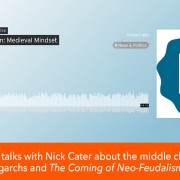A Lesson on California Housing from the Billionaires Planning a New City
A cadre of Silicon Valley elites is drawing fierce criticism from local residents and environmentalists for planning a new city on the outskirts of the Bay Area, a project dubbed “California Forever.” But the effort should be applauded for revealing a truth about California’s failed housing policies.
This group of California’s most influential wants to build one or more new towns on the urban fringes, having spent about $900 million to buy an area roughly twice the size of San Francisco some 60 miles east of the city. The project breaks with the philosophy of the state’s housing policy, which has long been focused on urban densification.
Despite the state’s efforts to encourage residential development, California’s housing markets remain among the least affordable in the country. The homeownership rate is near the nation’s lowest. To afford a house at the median price today in Southern California, a family needs an annual income of $180,000, twice the region’s median.
Some housing advocates insist that the solution is to force growth into existing neighborhoods. Yet the state’s supposedly pro-development new housing laws have yet to produce more homes at a scale sufficient to address the affordability crisis, and recent data suggest an accelerating decline in housing production.
Over the last five years, California has consistently lagged in construction not just of single-family housing but of multifamily housing as well. Not one California metropolitan area was among the top 50 in housing growth last year; Texas had six areas on that list, Florida 11. Los Angeles, the state’s dominant metropolitan area, didn’t crack the top 200.
Clearly we need a new approach that is more aligned with market demands. A recent report by London Moeder, a San Diego real estate consultancy, noted that California regulations make it difficult to build the kinds of housing people are looking for, particularly multi-bedroom homes that can accommodate families.
Research by Jessica Trounstine at UC Merced similarly found that “preferences for single-family development are ubiquitous. Across every demographic subgroup analyzed, respondents preferred single-family home developments by a wide margin. Relative to single-family homes, apartments are viewed as decreasing property values, increasing crime rates, lowering school quality, increasing traffic and decreasing desirability.”
Opposition to densification of existing neighborhoods remains staunch in many cities, with some threatening a voter initiative to restore municipal control of zoning.
California’s focus on increasing density in urban areas is also at odds with the national shift toward remote work and retail and office growth in more suburban, lower-density areas.
A sensible California housing policy would respond to these trends and consumer desires, much as the Bay Area project promises to do. This does not mean we will need sprawling growth.
Read the rest of this piece at Los Angeles Times.
Joel Kotkin is the author of The Coming of Neo-Feudalism: A Warning to the Global Middle Class. He is the Roger Hobbs Presidential Fellow in Urban Futures at Chapman University and Executive Director for Urban Reform Institute. Learn more at joelkotkin.com and follow him on Twitter @joelkotkin.
Wendell Cox is principal of Demographia (St. Louis, MO-IL), a demographics and public policy firm. He was appointed by Mayor Tom Bradley to three terms on the Los Angeles County Transportation Commission, which was a predecessor to the Los Angeles County MTA. Speaker Newt Gingrich appointed him to the Amtrak Reform Council. He specializes in demographics and urban affairs. He is co-author of the Demographia International Housing Affordability Survey and author of Demographia World Urban Areas, A Question of Values: Middle-Income Housing Affordability and Urban Containment Policy, Canada’s Middle-Income Housing Affordability Crisis, and the Urban Reform Institute Standard of Living Index. He is a senior fellow at member of the Board of Advisors at the Center for Demographics and Policy at Chapman University, the Urban Reform Institute (Houston) and the Frontier Centre for Public Policy (Winnipeg).
Photo: Tosh Chiang via Flickr under CC 2.0 License.









